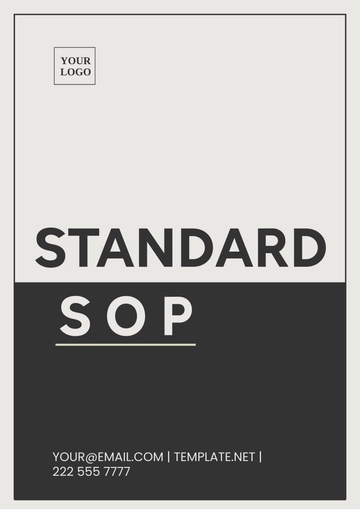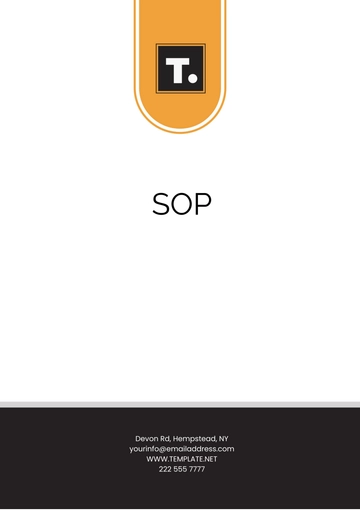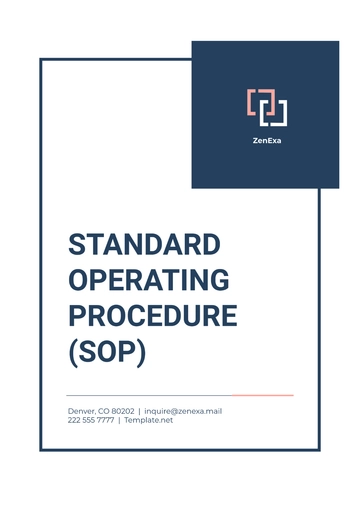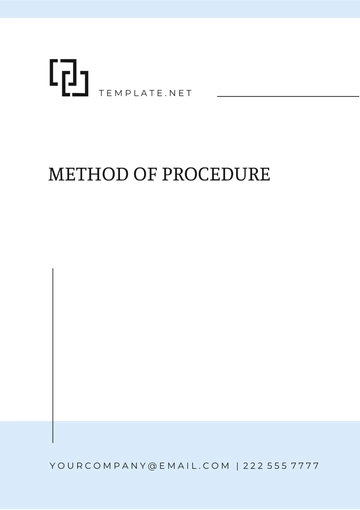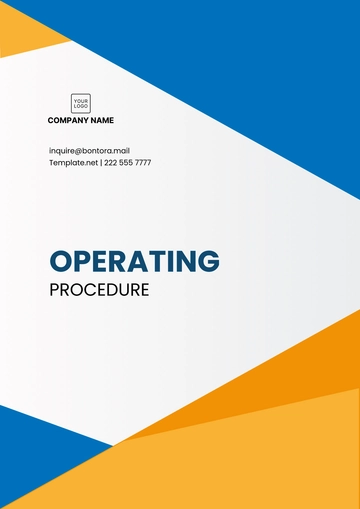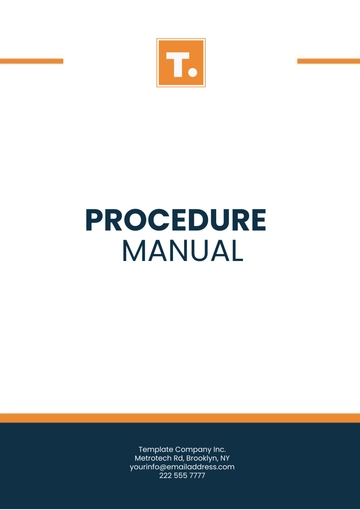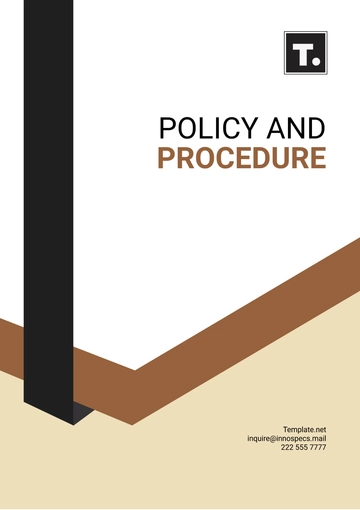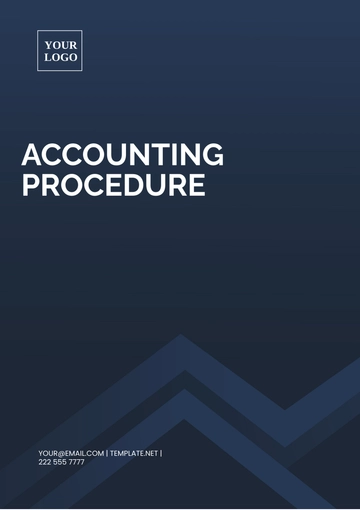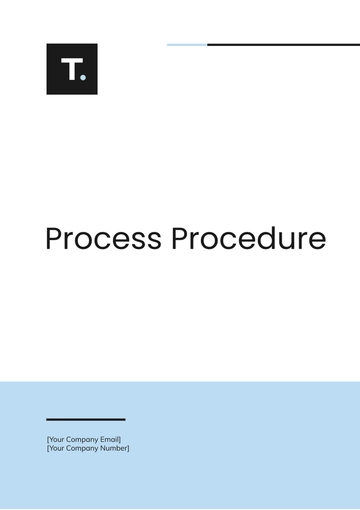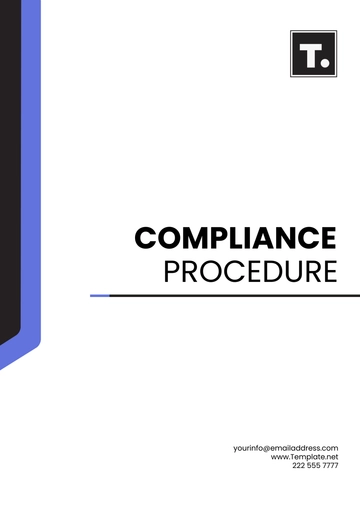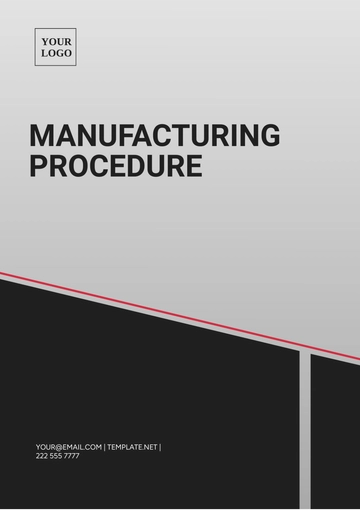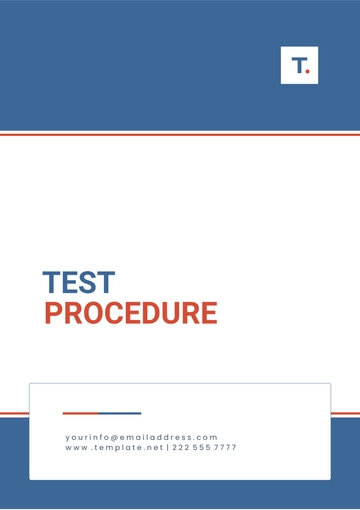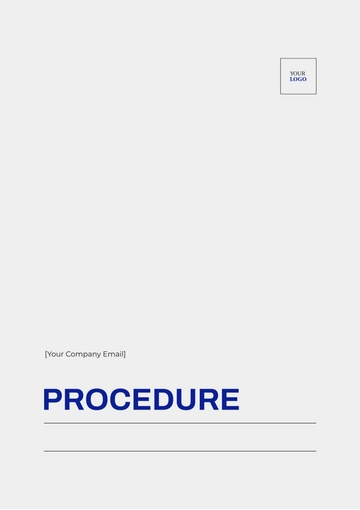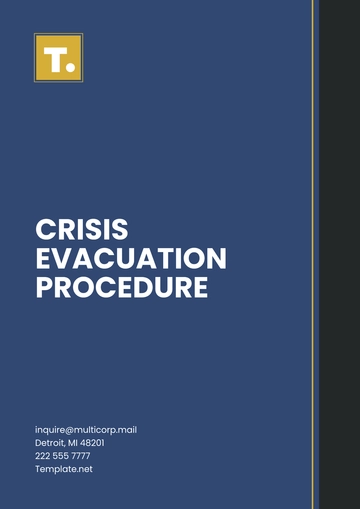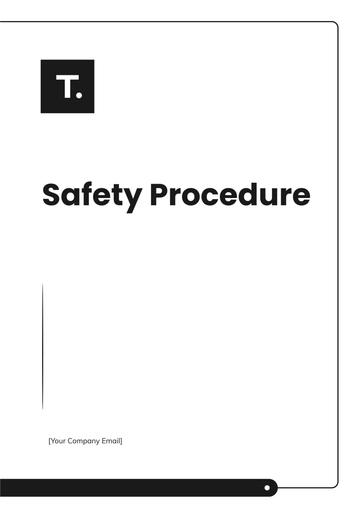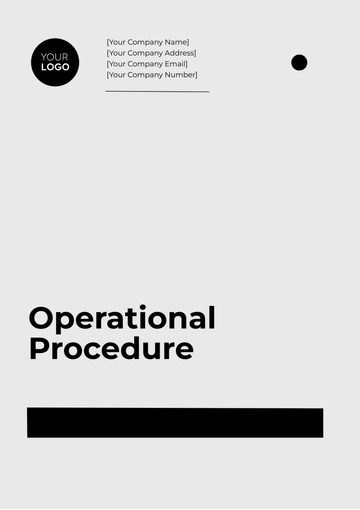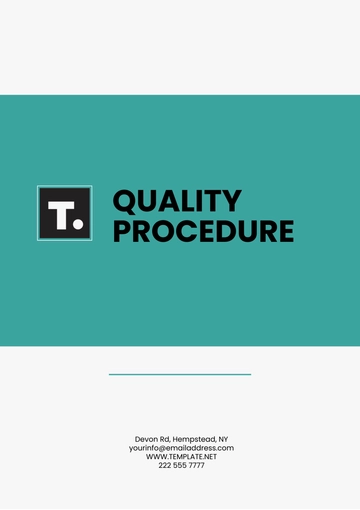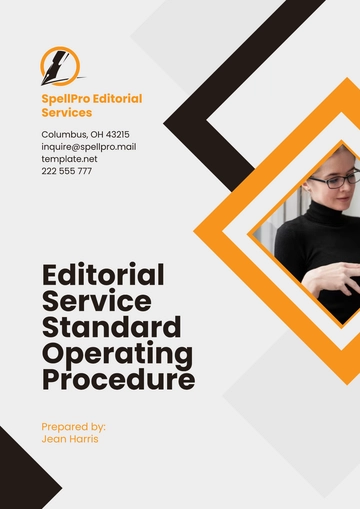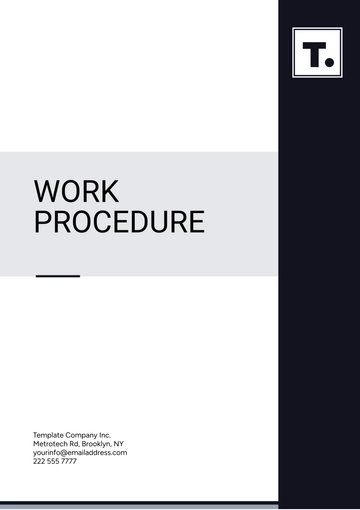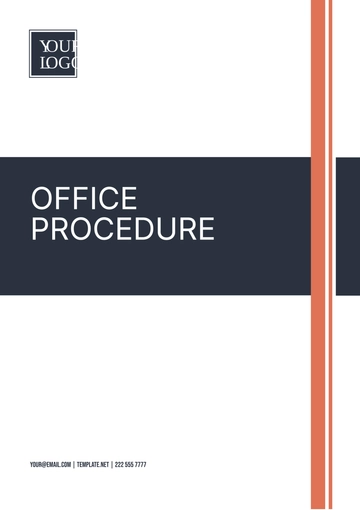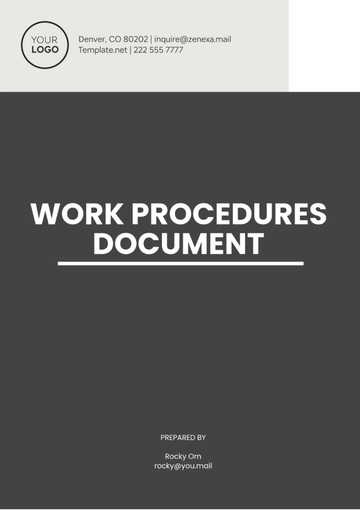Free Accounting Procedure
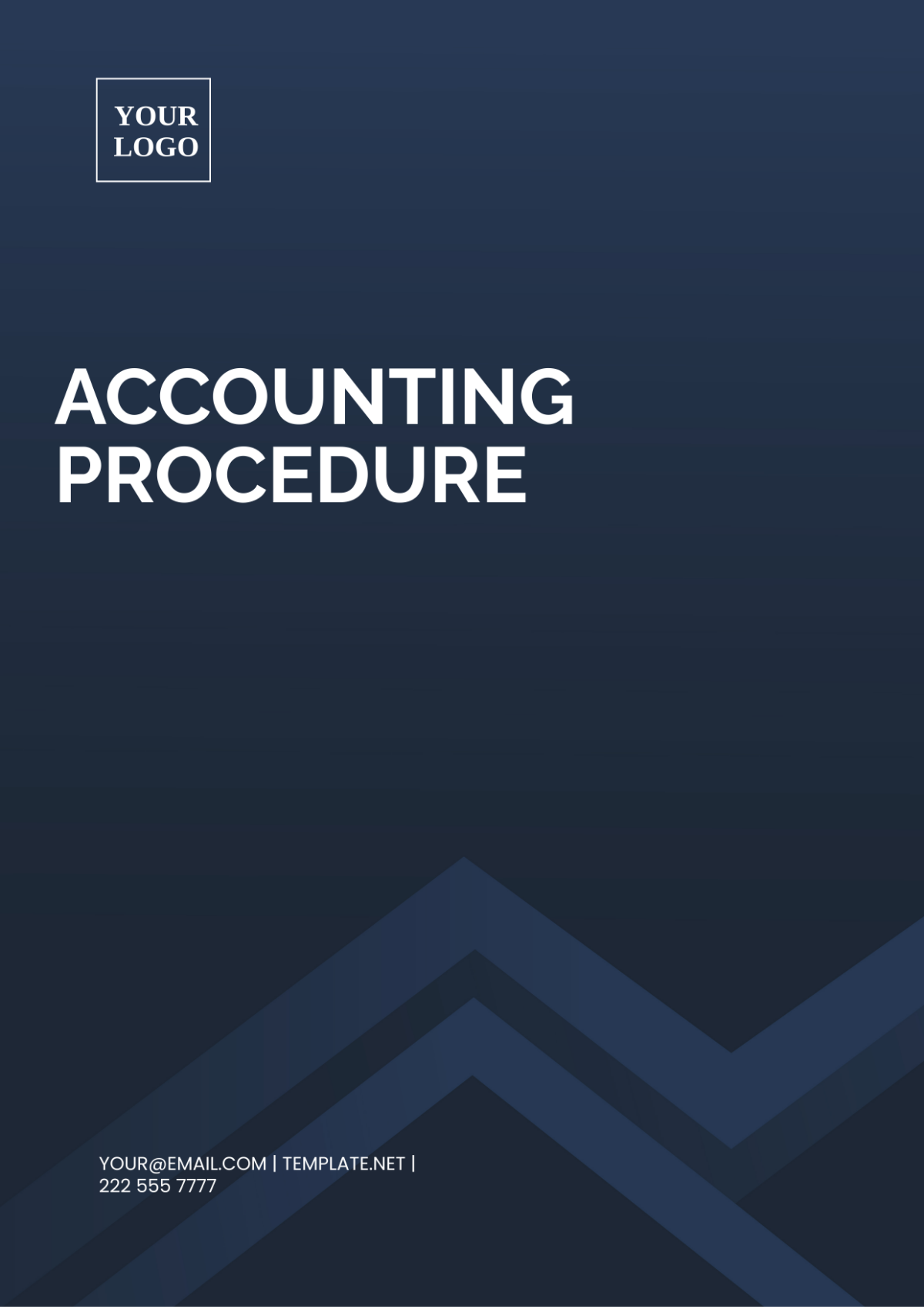
Prepared By: [YOUR NAME]
Title: [YOUR POSITION]
I. Introduction
Purpose of the Document: This Accounting Policy and Procedure document outlines the guidelines and standards for maintaining accurate financial records, ensuring compliance with regulatory requirements, and promoting transparency and accountability in financial reporting within [Your Company Name].
Scope of Application: This policy applies to all employees involved in financial transactions and reporting within the organization.
Authority and Responsibility: The Chief Financial Officer (CFO) holds ultimate responsibility for overseeing adherence to this policy, while department heads are responsible for ensuring compliance within their respective areas.
II. Accounting Principles
Generally Accepted Accounting Principles (GAAP): All financial transactions and reporting shall adhere to GAAP to ensure consistency and comparability.
International Financial Reporting Standards (IFRS): Where applicable, IFRS shall be followed to align with global accounting standards.
Company-Specific Accounting Policies: In addition to GAAP and IFRS, [Your Company Name] may establish specific accounting policies tailored to its operations and industry.
III. Financial Reporting
Frequency of Reporting: Financial reports shall be generated on a monthly basis, with quarterly and annual reports for external stakeholders.
Reporting Deadlines: Monthly financial reports are due within five business days following the end of the month.
Required Financial Statements: Standard financial statements including the Balance Sheet, Income Statement, and Cash Flow Statement shall be prepared for each reporting period.
IV. Chart of Accounts
Structure and Organization: The Chart of Accounts shall be organized in a hierarchical structure, categorizing accounts by type, function, and department.
Approval Process for New Accounts: Requests for new accounts shall be submitted to the Finance Department for review and approval by the CFO or designated authority.
V. Recording Transactions
Documentation Requirements: All financial transactions must be supported by appropriate documentation such as invoices, receipts, and purchase orders.
Recording Methods: Transactions shall be recorded on an accrual basis to accurately reflect the financial position of the company.
Segregation of Duties: The recording, authorization, and custody of assets shall be segregated to prevent fraud and error.
VI. Accounts Payable
Invoice Processing: Invoices shall be reviewed, approved, and processed for payment in a timely manner to avoid late fees and maintain good vendor relationships.
Approval Workflow: Purchase orders and invoices shall follow a predetermined approval workflow based on the amount and nature of the transaction.
Payment Procedures: Payments shall be issued via electronic transfer or check, with proper documentation maintained for audit purposes.
VII. Accounts Receivable
Invoicing Process: Invoices shall be issued promptly upon completion of goods or services rendered, with clear terms and payment instructions.
Credit Policy: A credit policy shall be established to assess the creditworthiness of customers and mitigate the risk of bad debts.
Collection Procedures: Delinquent accounts shall be followed up regularly through dunning letters, phone calls, and other collection efforts.
VIII. Petty Cash Management
Petty Cash Custodian Appointment: A designated employee shall be appointed as the petty cash custodian responsible for managing and disbursing petty cash funds.
Replenishment Process: Petty cash funds shall be replenished on a regular basis upon submission of receipts and reconciliation of expenditures.
IX. Bank Reconciliation
Frequency of Reconciliation: Bank accounts shall be reconciled monthly to ensure accuracy and identify any discrepancies.
Reconciliation Process: Bank statements shall be compared to the general ledger balances, with variances investigated and resolved promptly.
Resolution of Discrepancies: Any discrepancies identified during the reconciliation process shall be investigated and corrected in a timely manner, with appropriate adjustments made to the accounting records.
X. Policy Review and Revision
Frequency of Review: This policy shall be reviewed annually and revised as necessary to reflect changes in regulations, industry standards, and organizational needs.
Process for Policy Amendments: Proposed amendments to this policy shall be submitted to the CFO for review and approval, with input from relevant stakeholders as needed.
Approval of Policy Changes: Approved policy changes shall be communicated to all affected employees and documented for future reference.
- 100% Customizable, free editor
- Access 1 Million+ Templates, photo’s & graphics
- Download or share as a template
- Click and replace photos, graphics, text, backgrounds
- Resize, crop, AI write & more
- Access advanced editor
Streamline your financial operations with this Accounting Procedure Template, expertly created by Template.net. Designed for accuracy, this template simplifies procedure documentation. Fully customizable, downloadable, and printable, it ensures seamless integration into your accounting processes. Editable in our AI Editor Tool, it enables precision in documenting financial procedures. Elevate your accounting standards effortlessly with this indispensable tool.
